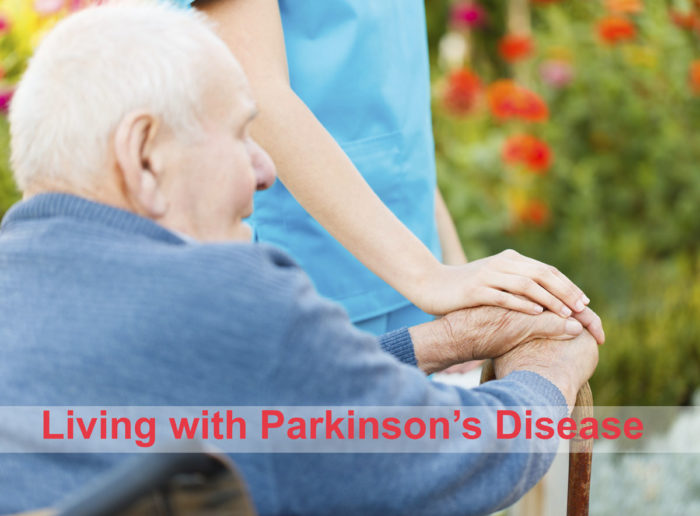April 11th is World Parkinson’s Awareness Day. We have all heard of Parkinson’s disease, but what exactly is this disease?
Parkinson’s disease is a disorder of the central nervous system that results from dopamine-producing nerve cells in the brain dying off. Parkinson’s disease is the second most common neurodegenerative disorder, which affects 2-3% of the population 65 and younger- totaling more than one million people. According to the Journal of Neurology Neurosurgery and Psychiatry, men are about 1.5 times more likely to develop the disease than women. Parkinson’s disease has both motor, and non-motor symptoms. Among the most common are tremors, balance and gait problems, slowness of movements, rigid movements, stiff facial expressions, anxiety and depression, loss of mental sharpness, vision problems and dizziness, insomnia, and muffled speech. Currently, the Center of Disease Control rates complications from Parkinson’s disease as the 14th cause of death in the United States.
Furthermore, Parkinson’s disease is both chronic, meaning it persists over a long period of time, and progressive, meaning its symptoms worsen over time. Some experience only minor motor disruptions and impairments, while others are severely disabled. To date, there is no cure for Parkinson’s disease. There are a variety of medications that increase the dopamine supply to the brain, helping to reduce the side effects of the disease.
Parkinson’s disease not only affects the person diagnosed, but the entirely family. And while living with Parkinson’s can be challenging, there are ways to live a happy, healthy life. Jeannette Sheehan, an experienced Nurse Practitioner and mother to a triumphant, admirable son living with Parkinson’s disease, shares her insights on how to live a wholesome, and fulfilling life with Parkinson’s. Here are her some of her suggestions on how to live well with Parkinson’s:
- Exercise. Exercise is a natural way to increase dopamine production in the brain. Because dopamine loss is a symptom of Parkinson’s disease, this natural way to replenish the dopamine supply is important. Some great suggestions are physical therapy, a personal trainer, swimming, Tai-Chi, boxing and riding a stationary bike.
- Medication management. Taking medications on time is crucial. Because many of the medications work to manage dopamine levels and prevent side effects, they must be taken on a set, regular schedule. Setting regular alarm clocks to go off at the same time every day is helpful in managing medication times.
- Drink enough water. Drinking enough water helps to prevent constipation, this is a common side effect of many of the medications prescribed for Parkinson’s. Drinking plenty of water also keeps the kidneys function properly helping to prevent UTIs.
- Eat slowly and cut food up well. It is important to be aware of the speed, along with the size of bites, when eating to help prevent choking.
- Deep breathing exercises. Exercising the lungs daily by practicing deep breathing can help prevent respiratory issues like pneumonia.
- Manage drooling. Drooling, or Sialorrhea, is a common symptom of Parkinson’s disease. Drooling can prevent people from going out and attending events so controlling this is important. Speech therapy or Botox injections may help control drooling.
- Rest. With all the important things you have to remember to do, you also have to make time for rest and relaxation. Restful nights with enough sleep are essential to living well. Your neurologist can help with sleep/insomnia issues. It is also important for the caregiver(s) to get a break and enough rest. Take advantage of the support and resources available to you. Everyone functions better after a good night’s sleep!
April 11th is dedicated to raising awareness and funding for this disease that affects so many. The Parkinson’s Foundation and The Michael J. Fox Foundation are great places to donate to help fund research for a cure. Additionally, this day is dedicated to supporting those diagnosed with the disease, and reminding them, and their families, that it is possible to live well, healthily, and happily with Parkinson’s. Together, we can work towards a cure and a better life for everyone living with Parkinson’s disease.

